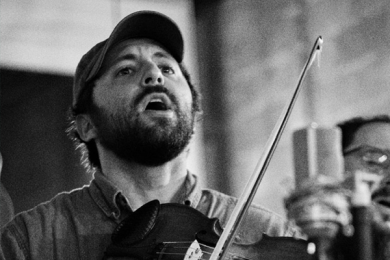Hating theatre, why theatre matters, and the purpose of community theatre
News
I want more perspectives from people who are turned off by theatre from bad or mediocre experiences, or those who have seen great shows and haven't bothered to see more. That's why I loved the piece by Joel Scott, Why I Hate Theater. I've been considering doing a podcast tackling this, but I've always put it aside. It requires moving out of my comfort zone, something I should do more often--and hopefully will soon as I consider reformatting Twin Cities Theater Connection podcast.
As I read it, I was reminded that "theatre," as a term, is too often used as a crutch or catch-all. A person rarely says they hate movies--they have genres or directors to which they gravitate (lately I've been surviving on an almost exclusive diet of horror flicks). This is mainly an exposure problem for the profession, and I would prefer if there were more people who had specific theatre interests, i.e. a love for musicals, or period dramas, or farces. Cultivating that interest takes time, which is an important benefit of a fringe festival--a person can see many different shows in a short time and thereby develop a better sense of their own tastes. The Iveys function on a similar, though smaller scale: the Iveys bring in folks who saw the latest big musical at Hennepin Stages and wanted to see more, but the Iveys then sends them to The Jungle, or Workhouse, or Gremlin, and forces them to think about what they saw critically.
As a theatre-lover who is able to take an abysmal show like a raw habenero pepper (it stings but OH DOES IT STING SO GOOD), I try to remember that my interest in theatre came from the love my mother had for the musicals The Sound of Music, The King and I and the original cast recordings of Les Miserables and Phantom of the Opera she gave me as gifts, even though it would be years before we even saw those shows. Many just don't have a similar--or any--entry point into theatre. I don't have an answer to the neverending problem of butts-in-seats, or how to get people who are anti-theatre to turn to the stage with hungry eyes, except to encourage your theatre-skeptic friends and family to see the work you're doing.
But likely you're doing this already, so enough talk of bringing the skeptics into the fold. To news!
Local
I want to take the time here to show support for actress Katie Ka Vang, whose cancer is in remission and is back onstage in her one-woman show, Hmong Bollywood. In the words of South Park Elementary School Principal Victoria: "Cancer is pure evil. [...] When there is a cancer, you have to fight it. You can't reason with cancer. You can't wish it away. Cancer doesn't play by the rules, so neither can you." You fought, Katie, and you're winning. Know that I'm out there, rooting for you!
Our National (lack of) Circus
In short, as Europe's circus arts have continued to evolve, North America's--with the large exception of Cirque du Soleil--has stagnated. The circus arts in our community seem basically invisible--Europeans subsidized the art while the Americans didn't. I'm hungry for it--or at least hungry for an alternate history novel about an America where the circus arts rose to prominence in the last 40 years.
This article also made me disappointed that I couldn't get over to Circus Now on Monday at Ginger Hop. I could have used the education.
My Theatre Matters!
Launched last week across the pond, the My Theatre Matters! aims to make the case for theatre in UK communities. It should be emphasized (as this blog on the campaign points out) that as with anything, don't wait for your politicians to come to you for your opinion and input--go to them. That's what this campaign attempts to do--give people a voice to tell them how theatre has aided their lives and communities.
How can we get something like this started in the US?
The Purpose of Community Theatre
I'm drawing a lot from the Guardian this week, but it seems that the flag sent up by My Theatre Matters! is affecting their column inches devoted to theatre. In this blog, Lyn Gardner advocates for judging community productions on performance only. But Gardner also acknowledges there is a lot more going on:
"I can't review intent, and I can't review the fact that the people putting on the show will almost certainly have expended much time and effort, and may even have mortgaged someone's granny's house to raise the money."
Maybe it shouldn't be a straight review to begin with then--there are other stories there beyond the stage, beyond "the tip of the iceberg."
Happy 150th Birthday, Stanislavski!
Technically, his 150th was back in January, but I'm sure he'll forgive us for not mentioning it. I don't recall learning anything about Stanislavski the man when I was at university--my classes centered mainly on technique. But learning about Stanislavski's dyslexia, his insecurities, and his envy of actors who appeared so relaxed and motivated onstage gave me a new, sympathetic perspective on the man.
Hugs For All!
I wanted to link to Episode One of the new web series Theater People a couple of weeks ago, but it was only available for 48 hours. For those that missed that, here's the Theater People minute, featuring familiar locations and faces!
---
If you have feedback or comments on any of the articles above, or suggestions for future blog and news items, please leave them in the comments or e-mail me at [email protected].
Until next week: see theatre, discuss theatre, live theatre.




